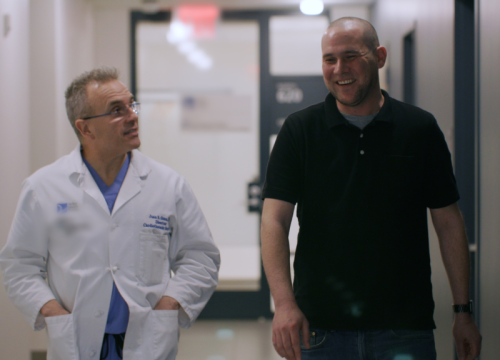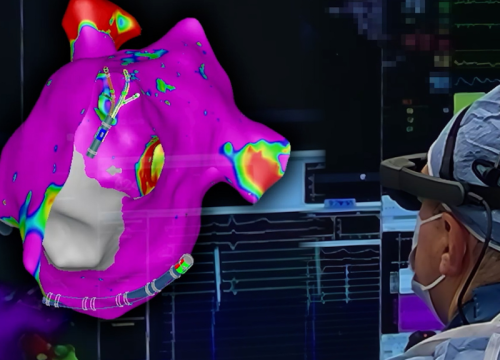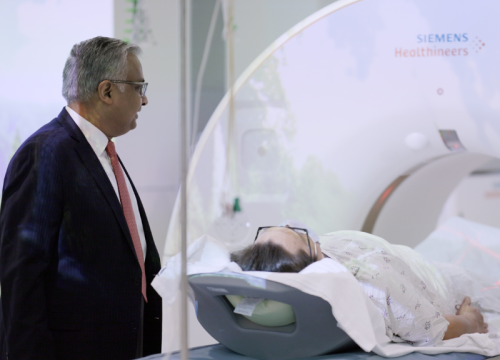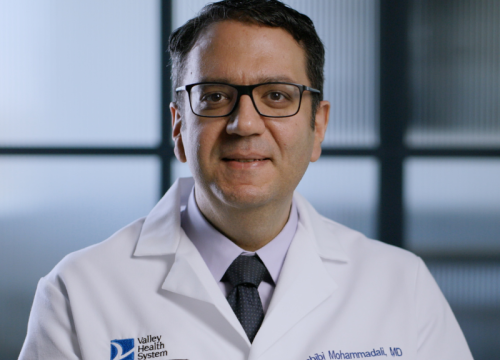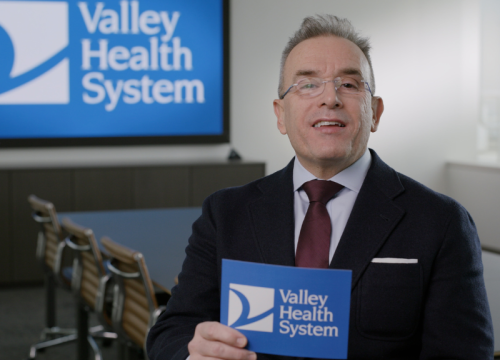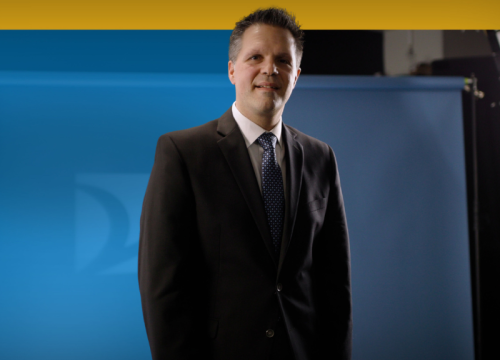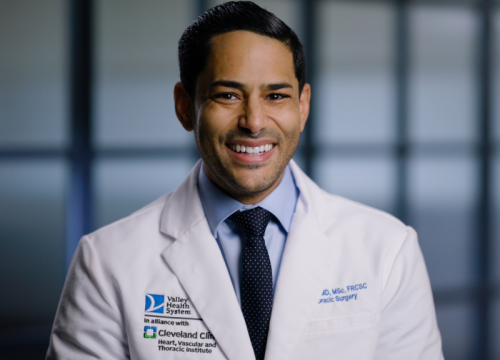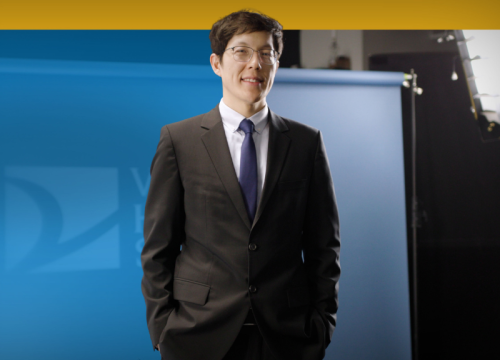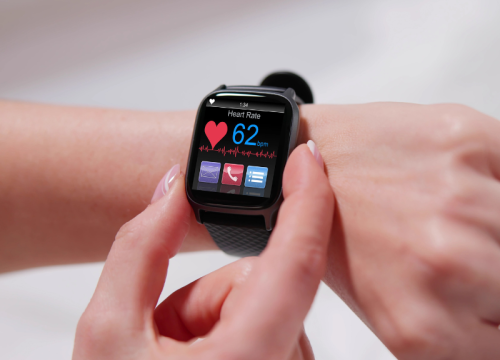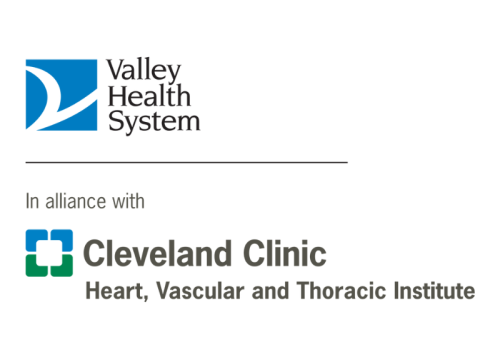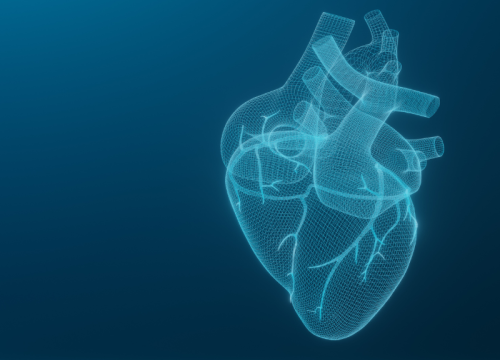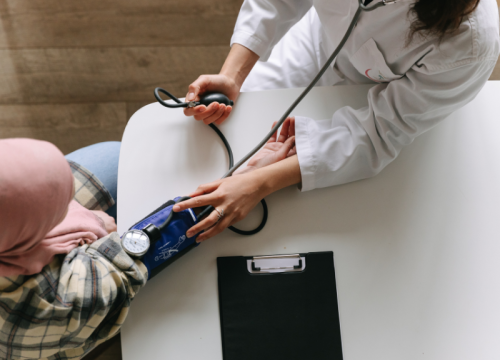The Structural Heart Program at Valley addresses structural heart disease, or defects in the heart's valves or chambers.
Watch: The Structural Heart Program at Valley addresses structural heart disease, or defects in the heart’s valves and chambers. Our structural interventionalists strive to deliver patient-focused, minimally invasive care that is tailored to each patient’s needs and ongoing medical issues.
The Valley Approach to Structural Heart Disease
Our goal is to provide you with patient-focused care that is compassionate, minimally invasive, evidence-based, and tailored to each patient's particular needs and ongoing medical issues. To do this, we use a multidisciplinary, heart team approach that tailors care to your specific needs.
At Valley, this team approach includes structural interventionalists, structural heart disease specialists, interventional cardiologists, general cardiologists, radiologists, cardiac surgeons, and advanced practice nurses. Together, our multidisciplinary team provides a collaborative approach to developing individualized treatment plans for each patient to ensure that we are making the appropriate treatment decisions after an objective assesment.
Our team also benefits from our collaboration with Valley's Center for Comprehensive Heart Failure Care and Advanced Cardiovascular Imaging Program.
Conditions Treated
- Aortic Regurgitation
- Aortic Stenosis
- Atrial Fibrillation
- Atrial Septal Defect (ASD)
- Cardiac Tamponade
- Coarctation of the Aorta
- Hypertrophic Obstructive Cardiomyopathy
- Mitral Regurgitation
- Mitral Stenosis
- Paravalvular Leak
- Patent Foramen Ovale (PFO)
- Pulmonary Embolism
- Ventricular Septal Defect (VSD)
Treatments Offered
- Stress tests/Echocardiogram
- Cardiac catheterization
- Percutaneous coronary intervention (stenting)
- Endovascular therapy for peripheral arterial disease
- Transcatheter aortic valve replacement (TAVR)
- Transcatheter mitral edge-to-edge repair (TEER) using the MitraClip device
- Transcatheter tricuspid edge-to-edge repair (TEER)
- Transcatheter aortic valve-in-valve replacement (ViV in TAVR)
- Transcatheter mitral valve replacement (TMVR)
- Percutaneous balloon aortic and mitral valvuloplasty
- Percutaneous closure of patent foramen ovale and atrial septal defects
- Septal alcohol ablation
- Pulmonary thrombectomy and thrombolysis
- Left atrial appendage occlusion using WATCHMAN and Amulet devices
Why Choose Valley for Structural Heart Disease?
- Heart team approach: Due to the complex nature of heart disease, it can be challenging for patients to understand all the decisions that need to be made. That’s where a heart team approach can help: by gathering a variety of heart specialists together to help you make appropriate decisions. This is particularly beneficial for patients who have structural heart disease plus other related heart conditions that make treatment more complex.
- Patient and family-focused care: Your treatment is collaborative with you and your family at the center. For example, we host a Valve Clinic every Thursday where our heart team reviews all of our current patients. In this way, we ensure we understand all of the complexities of your history and physical condition so we are prepared for an interactive meeting with you and your family. In addition, your entire care team closely coordinates all aspects of your treatment, from referral to discharge.
- Nurse navigator: A diagnosis of a serious condition can leave patients asking, "Where do I go from here?" At Valley, our experienced clinical nurse navigators are a liaison between you, the TAVR team, and the hospital to ensure you receive the appropriate information, support, and follow-up that you need.
- Minimally invasive treatment options: Heart defects used to be fixed primarily by a cardiac surgeon. Now, thanks to advances in technology, we can treat complex structural heart disease using a minimally invasive catheter-based approach. This approach typically translates to safer and more efficient patient care.
- Staying on top of the latest research: Our team keeps up with the latest advances in the field to make sure you are getting up-to-date, evidence-based guidelines and care. For instance, studies have shown that getting you out of bed soon after your operation to engage in light activity (known as “early ambulation”) has big health benefits to your overall recovery.
- Cleveland Clinic alliance: Thanks to our alliance with the Cleveland Clinic, we’re able to offer patients additional heart expertise from a nationally ranked heart program.
- Specialized procedures for complex conditions: Through a catheter approach, the structural heart team offers pulmonary lysis, also referred to as thrombolysis, to treat pulmonary embolism. We also offer alcohol septal ablation for hypertrophic obstructive cardiomyopathy. These specialized procedures are not widely available at all heart centers.



